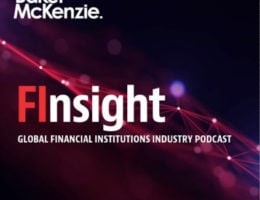The Financial Services Regulatory Momentum Monitor is a horizon-scanning tool enabling financial service providers to plan and prepare for coming developments across the jurisdictions in which they operate.
Baker McKenzie partnered with Risk.net in its annual ranking of the top operational risks for 2022. The report is based on interviews and in-depth discussions with 100 chief risk officers, heads of operational risk and senior practitioners at financial institutions, including banks, insurers, asset managers and infrastructure providers.
The Financial Services Regulatory (FSR) Momentum Monitor is a horizon-scanning tool enabling financial service providers to plan and prepare for coming developments across the jurisdictions in which they operate. Grouping upcoming changes into key business-relevant themes, the FSR Momentum Monitor highlights the extent and expected impact of upcoming regulatory intervention in multiple jurisdictions across the globe.
The recent increase in value of cryptoassets as an investment class along with media coverage associated with high profile large investors has resulted in regulators warning investors to be cautious of the associated volatility risk. Against the background of these recent developments, we’re seeing increasing demand for legal advice in this area.
Episode 21: COP26 Key Takeaways for Sovereign Wealth Funds
In this episode of FInsight, Andrew Hedges and Kay She from Baker McKenzie’s EMI group in London discuss their experience and observations while on the ground in Glasgow. They cover business imperatives and challenges affecting the global economy and how sovereign wealth funds are well-positioned to influence and make an impact on broader sustainability goals and action plans. As discussions on climate-related issues evolve from commitments to execution in the recent COP26 UN Climate Change Conference, we unpack some of the key takeaways relevant for sovereign wealth funds.
The financial services industry is undergoing sweeping changes driven by regulatory developments, rapidly advancing technology, ESG concerns and continued consolidation in the sector. The far-reaching impact of financial reforms, intricacies in their implementation, and conflicting regulations in different jurisdictions can expose businesses to increased regulatory risk.
In this episode of FInsight, Baker McKenzie partners Daniela Fonseca Puggina from our Miami office and Jennifer Semko from our Washington D.C. office discuss litigation readiness for FIs. The episode also covers potential vulnerabilities and disputes that they need to prepare for, current and emerging trends in litigation (from our Litigation Intelligence Tool and Report), and how they can benefit from litigation preparedness.
The Securities and Futures Commission recently released its Consultation Conclusions on Proposed Enhancements to the Competency Framework for Intermediaries and Individual Practitioners. Changes to the existing Guidelines on Competence and Guidelines on Continuous Professional Training will take effect in January 2022. These changes impact the competence and ongoing training requirements for new and existing Responsible Officers and Licensed Representatives of Licensed Corporations, as well as Executive Officers and Relevant Individuals of Registered Institutions.
In the latest episode of the Global Financial Industry Podcast, Baker McKenzie associates discuss: Sovereigns series – key principles of investment treaty protection. The episode covers recent examples of sovereign wealth fundsSWFs bringing investment treaty claims and how others can obtain access to these protections. The episode also analyzes why investors should consider investment treaties as part of their decision-making process.
In this special edition, Eva-Maria Segur Cabanac, a partner in our Vienna office and global sustainability lead for financial institutions, and Jennifer Klass, a partner in our New York office and co-chair of the financial regulation and enforcement practice in North America, talk with Ying Yi Liew on how the COVID-19 pandemic led to the prioritization of Environmental, Social, and Governance (ESG) considerations among financial institutions (FIs).








